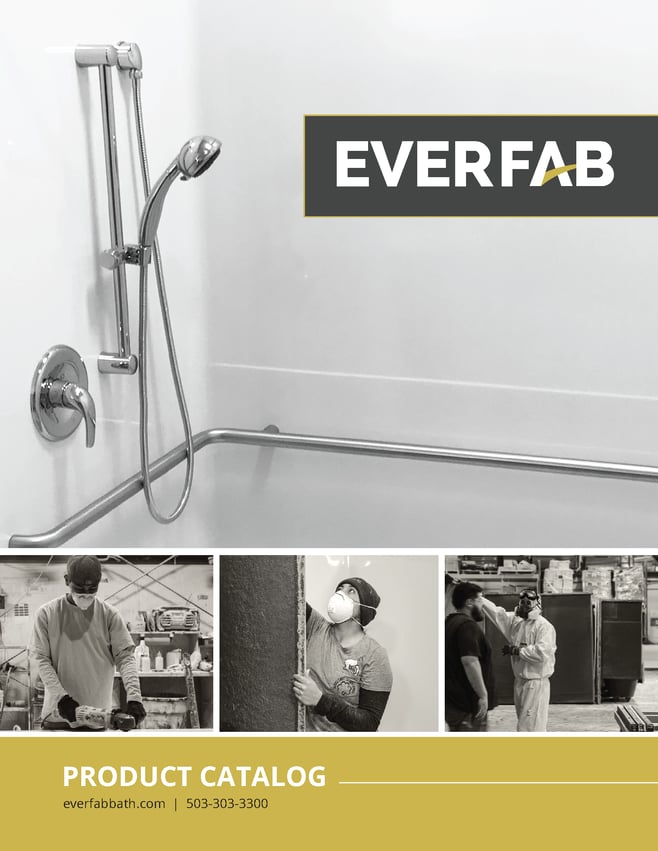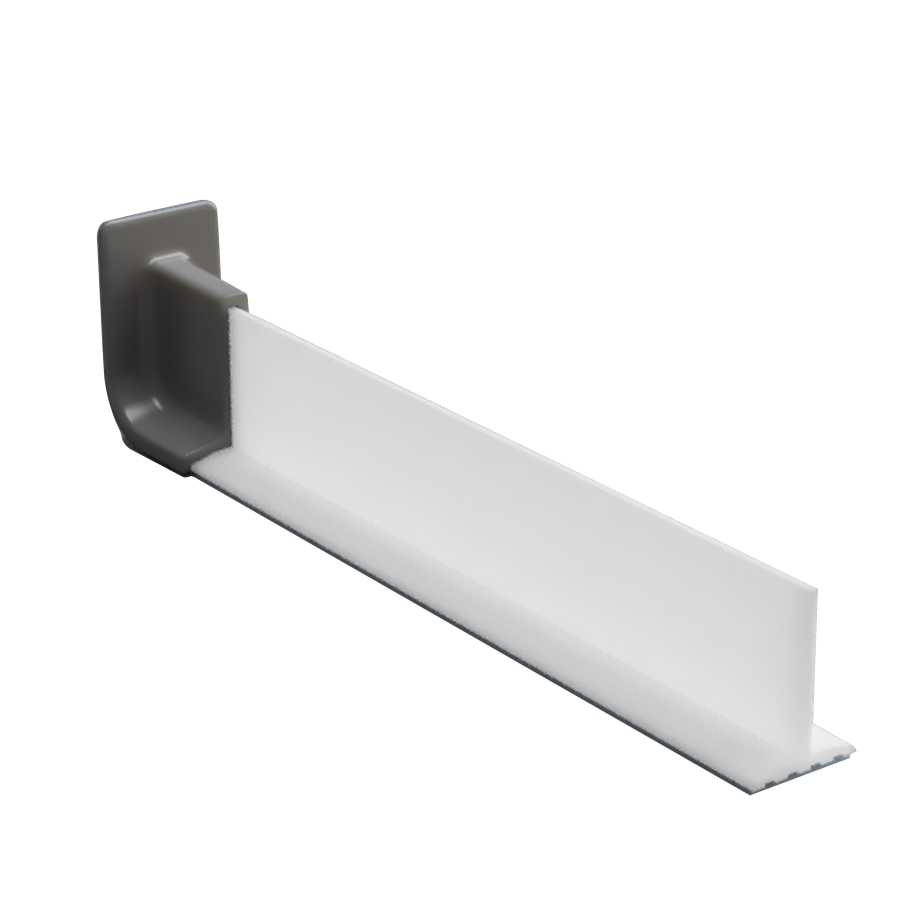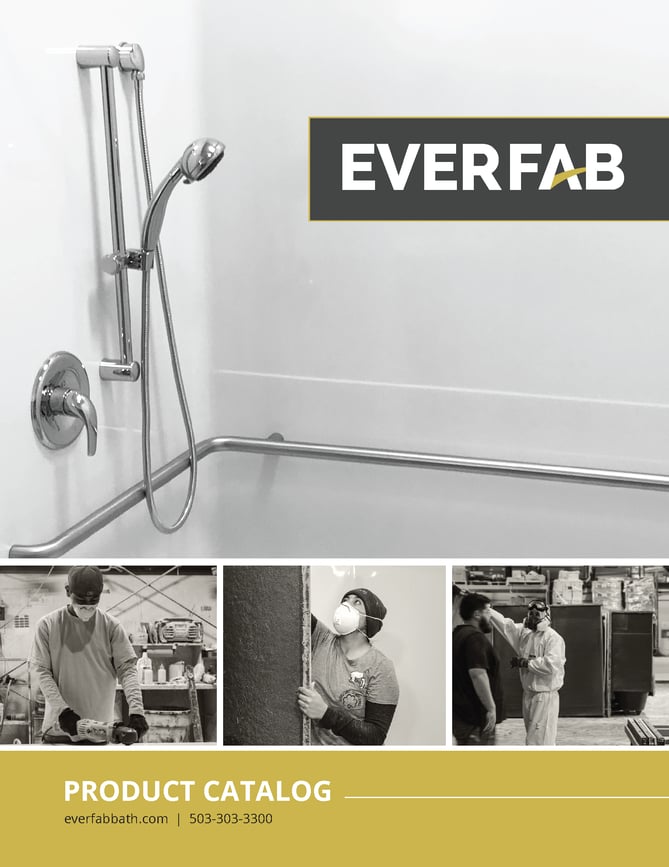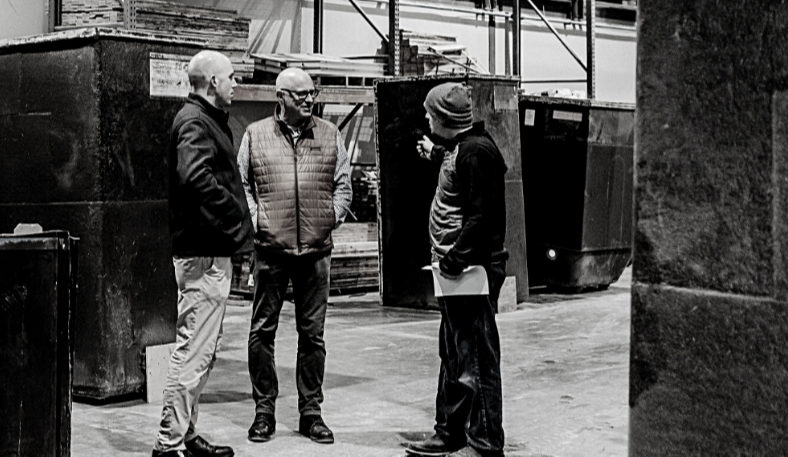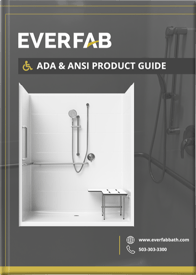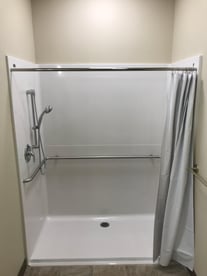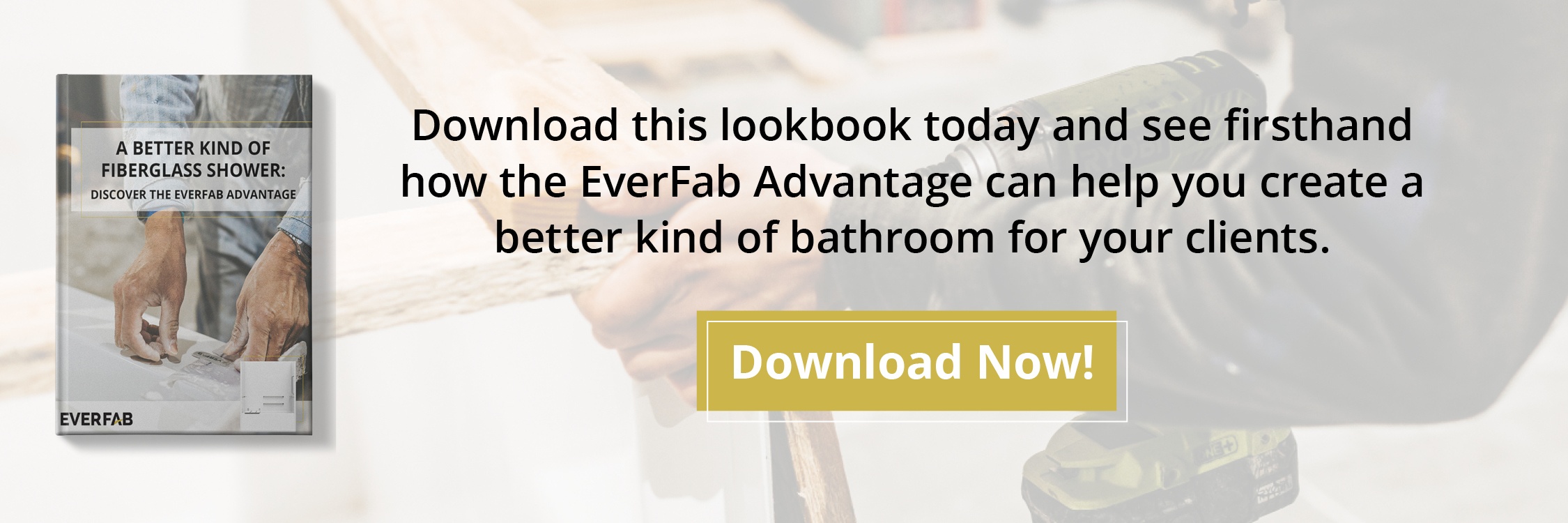-
Shop All Products
-
-
Shop All Products
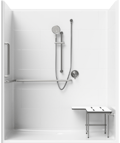
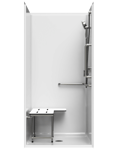
We meticulously sculpt and construct each model by hand to ensure our customers have durable shower units they can comfortably rely on for years to come.
-
-
-
About
-
-
About
We strive to be world-class in everything we do by hiring the best people, building the best product, and providing the best customer experience.
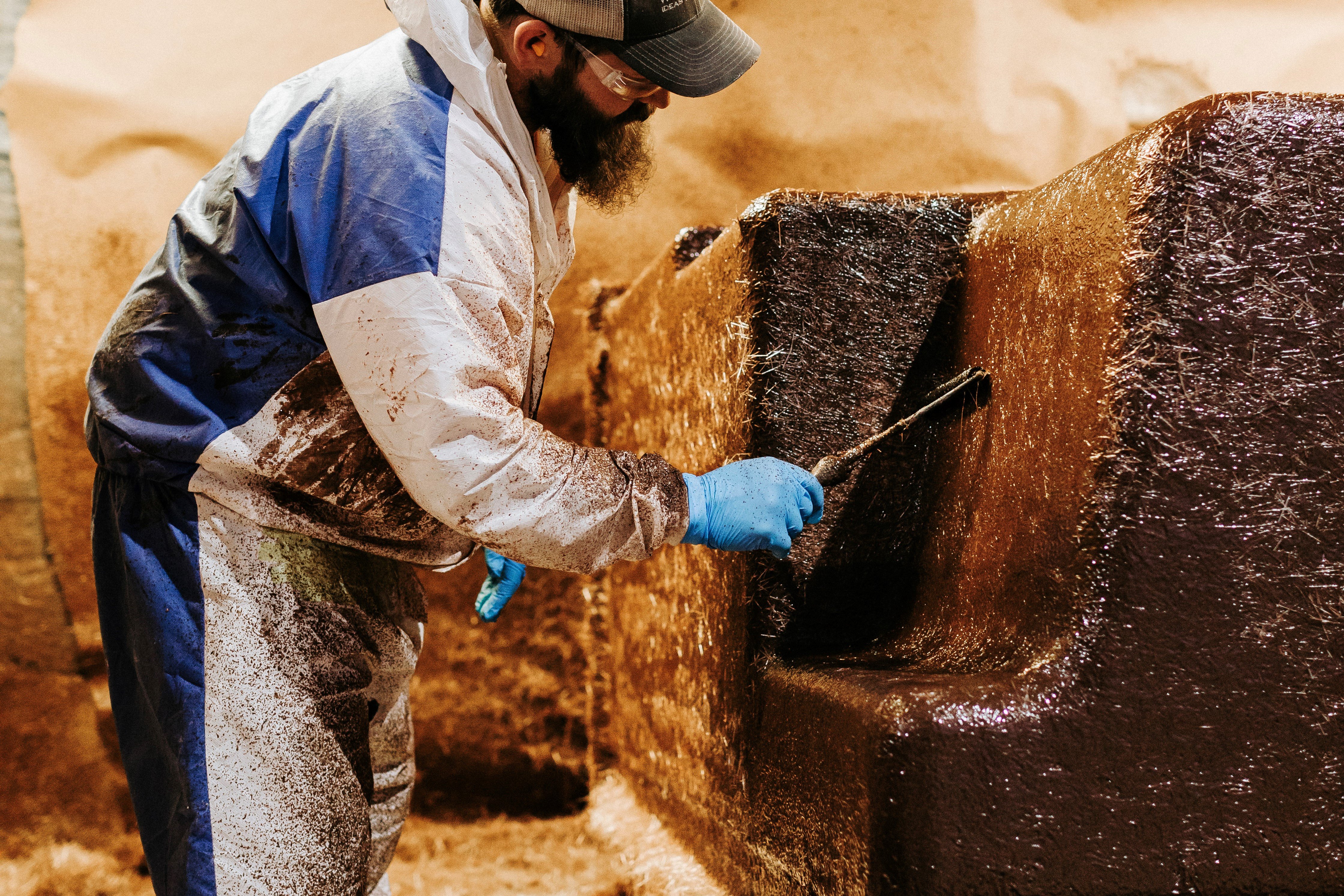
-
-
- Who We Work With
-
Resources
- Projects
- 503-303-3300
- Contact Us
- Search Products
Blog
Discover the latest industry trends and insights related to bathroom architecture and ADA compliance.
How Can You Tell Which Shower Materials Are the Best?

Stone or tile showers can be beautiful, but also tend to be heavy, expensive, time-consuming to assemble, and more difficult to clean. Prefabricated shower units can be made from many different materials, but as a maker of fiberglass showers, this variety is our area of expertise. Let’s take a look at the factors that separate shower materials used in some fiberglass showers from the rest of the pack:
1. Fiberglass Composition (Glass to Calcium Sulfate Ratio)
The fiberglass used in a shower is relatively simple in its composition, but easy to get wrong. Except for dyes used to color the material, the fiberglass composite is essentially a mixture of just two materials: glass and calcium sulfate. The ratio of one to the other has a profound effect on the performance and durability of the shower materials.
Fiberglass units with a higher ratio of calcium sulfate to glass in their shower materials are deceptive; They may superficially seem harder, due to the rigid feel of the calcium, but in fact they are more brittle and prone to chipping and cracking. The calcium sulfate is necessary to reduce the flammability of the fiberglass, but unfortunately, many manufacturers use too much of it and compromise the strength of their showers as a result. EverFab uses a proprietary blend with more glass and less calcium sulfate in our shower materials, resulting in a tougher and more durable shower.
2. Materials Used in Backing/Reinforcing Elements
Showers need to be reinforced to stay in form, not only during shipping and installation but throughout many years of use. Additionally, accessories like ADA compliant grab bars will require a certain degree of reinforcement in the shower walls and back to match the threshold for supported weight described in the ADA standards.
However, too many manufacturers take shortcuts with plywood or cardboard backing. This puts the unit at risk if it ever gets wet, as the wood can swell and distort, misshaping or damaging the unit. Fiberglass also has trouble bonding properly with wood layers, which can lead to peeling and delamination down the line. The best bet is to purchase a unit that’s all made from the same uniform shower materials.
3. Thickness of the Shower Bottom
It’s no secret that the shower bottom is the single most common failure point in both commercial and residential prefabricated shower units. Sagging, squeaks, cracks, and breaks in a fiberglass shower pan can result from improper support, poorly designed shower materials, or installation trouble (when the manufacturer leaves the installer to figure out a bottom support method, for example).
A thin bottom, especially if it lacks any supporting or reinforcing elements, is a huge culprit. Many manufacturers rely on flimsy PVC legs or wooden supports that extend down from the shower back—or don’t support the base at all. A lack of support makes installation more difficult, as the contractor will generally need to lay and level a mortar bed for the shower.
The EverFab Bottom Plate is our biggest selling point, and it isn’t close. There’s nothing like it on the market. Our showers all use a durable, thick, one-piece composite (the same durable material used on the rest of the shower) with multiple touchpoints on the floor to support the shower. It’s fully laminated onto the unit base, pre-leveled, and diamond-cut for perfect balance and strength.
4. Total Unit Weight
A heavy shower is a sign of poorly selected shower materials. Wood is heavy and no good for moist environments (or in rain on the distributor’s lot!), but due to cost efficiency, it’s still commonly used as a backing material in prefabricated showers. A unit with wood backing will be cumbersome to move and install, requiring a group of people. Instead, opt for showers made and reinforced entirely with layered fiberglass for optimum strength, improved longevity, and a much lighter total weight.
5. Strength Test Results
You know you can trust manufacturers with certified strength test results that verify the durability and reliability of their shower materials. We had our units put to the test by Carlson Testing, Inc., and the results speak for themselves. The units passed every test and exceeded all requirements for ADA compliance. One grab bar location in particular showcased the true strength of our reinforced all-fiberglass design, withstanding 1,505 pounds of force before failure and exceeding ADA shower standards six times over.
Interested to learn more about the EverFab Advantage? Give us a call. We’ll be happy to answer your questions about our shower materials and how our handmade, durable, ADA-compliant design can help with your next project.
Get the latest!
Subscribe to our newsletter
Read On
3 Benefits of a Commercial Shower Unit That Uses EverFab Core Material
Our unique EverFab Core Material is at the heart of every commercial shower design from EverFab....EverFab Commercial Shower Stalls Won’t Sag, Crack, or Break
Defects and damage to fiberglass commercial shower stalls are common challenges during shipping...Strength-Testing is a Crucial Step Toward an ADA Compliant Shower
If you want to have an ADA compliant shower, you need to make sure the unit(s) you purchase are...9050 Porter Way SE, Aumsville, OR 97325
COPYRIGHT © 2025 EVERFAB
